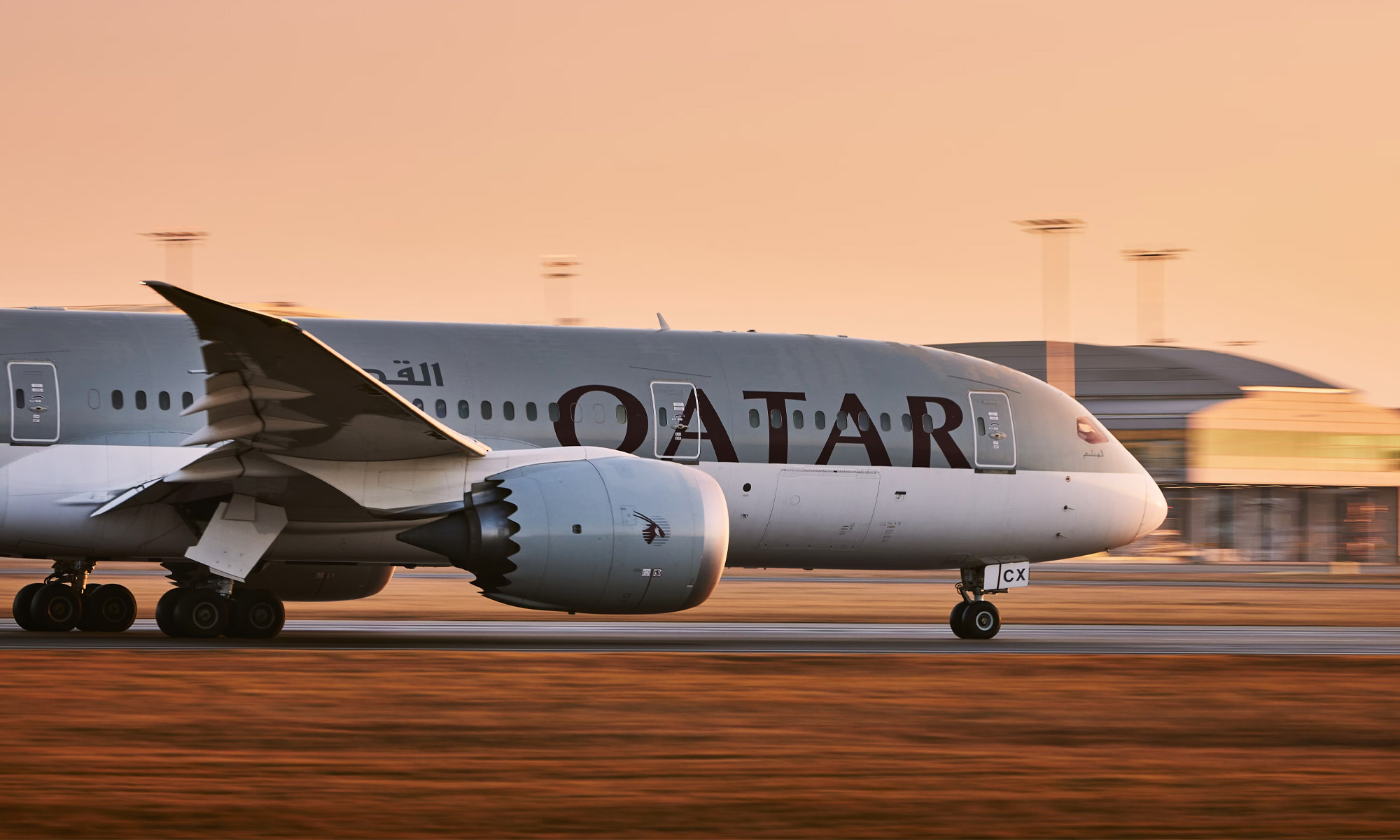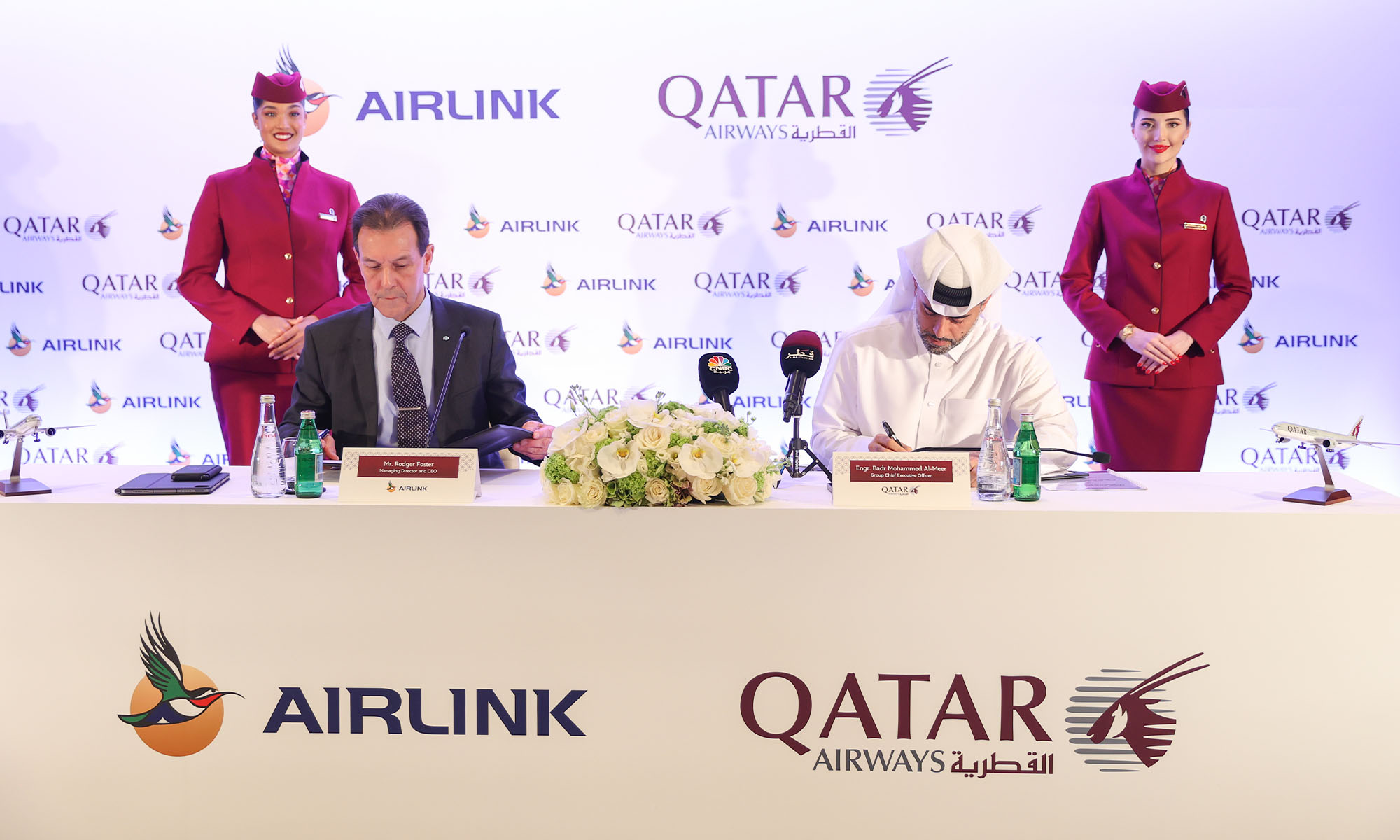News
Qatar Airways Acquires 25% Stake In South Africa’s Airlink
The investment will improve Qatar Airways’ position as a regional player in the African market and boost its economic potential.

The Qatar Airways Group has acquired a 25% share of Southern Africa’s top independent regional carrier, Airlink. The announcement signals ambitious plans for the multi-award-winning airline to further expand operations across the African continent. In addition, the investment in Airlink (which already flies to over 45 African destinations) will enhance the code-sharing alliance between the two carriers.

After the announcement, Qatar Airways Group Chief Executive Officer Engr. Badr Mohammed Al-Meer stated: “Our investment in Airlink further demonstrates how integral we see Africa being to our business’ future. This partnership not only demonstrates our confidence in Airlink, as a company that is resilient, agile, financially robust, and governed on sound principles, but also in Africa as a whole, showing huge potential that I am delighted we are able to help start realizing”.
Airlink Chief Executive Rodger Foster added: “Having Qatar Airways as an equity partner is a powerful endorsement of Airlink and echoes our faith in the markets we currently serve and plan to add to our network. This transaction will unlock growth by providing efficiencies of scale, increasing our capacity, and expanding our marketing reach. By bolstering Airlink and its business, this investment will strengthen all of the existing airline partnerships Airlink has nurtured over the years”.
Also Read: Insilico Develops The World’s First Fully AI-Generated Drug
The Qatar Airways and Airlink partnership will soon align both carriers’ loyalty programs — Qatar Airways Privilege Club and Airlink Skybucks — and eventually lead to further cooperation and market growth for both airlines.
Qatar Airways already flies to 29 African destinations, with a handful of new cities added since December 2020, including Abidjan, Abuja, Accra, Harare, Kano, Luanda, Lusaka, and Port Harcourt. Meanwhile, Cairo and Alexandria have also resumed regular scheduled flights.
News
Rabbit Expands Hyperlocal Delivery Service In Saudi Arabia
The e-commerce startup is aiming to tap into the Kingdom’s underdeveloped e-grocery sector with a tech-first, locally rooted strategy.

Rabbit, an Egyptian-born hyperlocal e-commerce startup, is expanding into the Saudi Arabian market, setting its sights on delivering 20 million items across major cities by 2026.
The company, founded in 2021, is already operational in the Kingdom, with its regional headquarters now open in Riyadh and an established network of strategically located fulfillment centers — commonly known as “dark stores” — across the capital.
The timing is strategic: Saudi Arabia’s online grocery transactions currently sit at 1.3%, notably behind the UAE (5.3%) and the United States (4.8%). With the Kingdom’s food and grocery market estimated at $60 billion, even a modest increase in online adoption could create a multi-billion-dollar opportunity.
Rabbit also sees a clear alignment between its business goals and Saudi Arabia’s Vision 2030, which aims to boost retail sector innovation, support small and medium-sized enterprises, attract foreign investment, and develop a robust digital economy.
The company’s e-commerce model is based on speed and efficiency. Delivery of anything from groceries and snacks to cosmetics and household staples is promised in 20 minutes or less, facilitated by a tightly optimized logistics system — a crucial component in a sector where profit margins and delivery expectations are razor-thin.
Despite the challenges, Rabbit has already found its stride in Egypt. In just over three years, the app has been used by 1.4 million customers to deliver more than 40 million items. Revenue has surged, growing more than eightfold in the past two years alone.
Also Read: Top E-Commerce Websites In The Middle East In 2025
CEO and Co-Founder Ahmad Yousry commented: “We are delighted to announce Rabbit’s expansion into the Kingdom. We pride ourselves on being a hyperlocal company, bringing our bleeding-edge tech and experience to transform the grocery shopping experience for Saudi households, and delivering the best products – especially local favorites, in just 20 minutes”.
The company’s growth strategy avoids the pitfalls of over-reliance on aggressive discounting. Instead, Rabbit leans on operational efficiency, customer retention, and smart scaling. The approach is paying off, having already attracted major investment from the likes of Lorax Capital Partners, Global Ventures, Raed Ventures, and Beltone Venture Capital, alongside earlier investors such as Global Founders Capital, Goodwater Capital, and Hub71.























